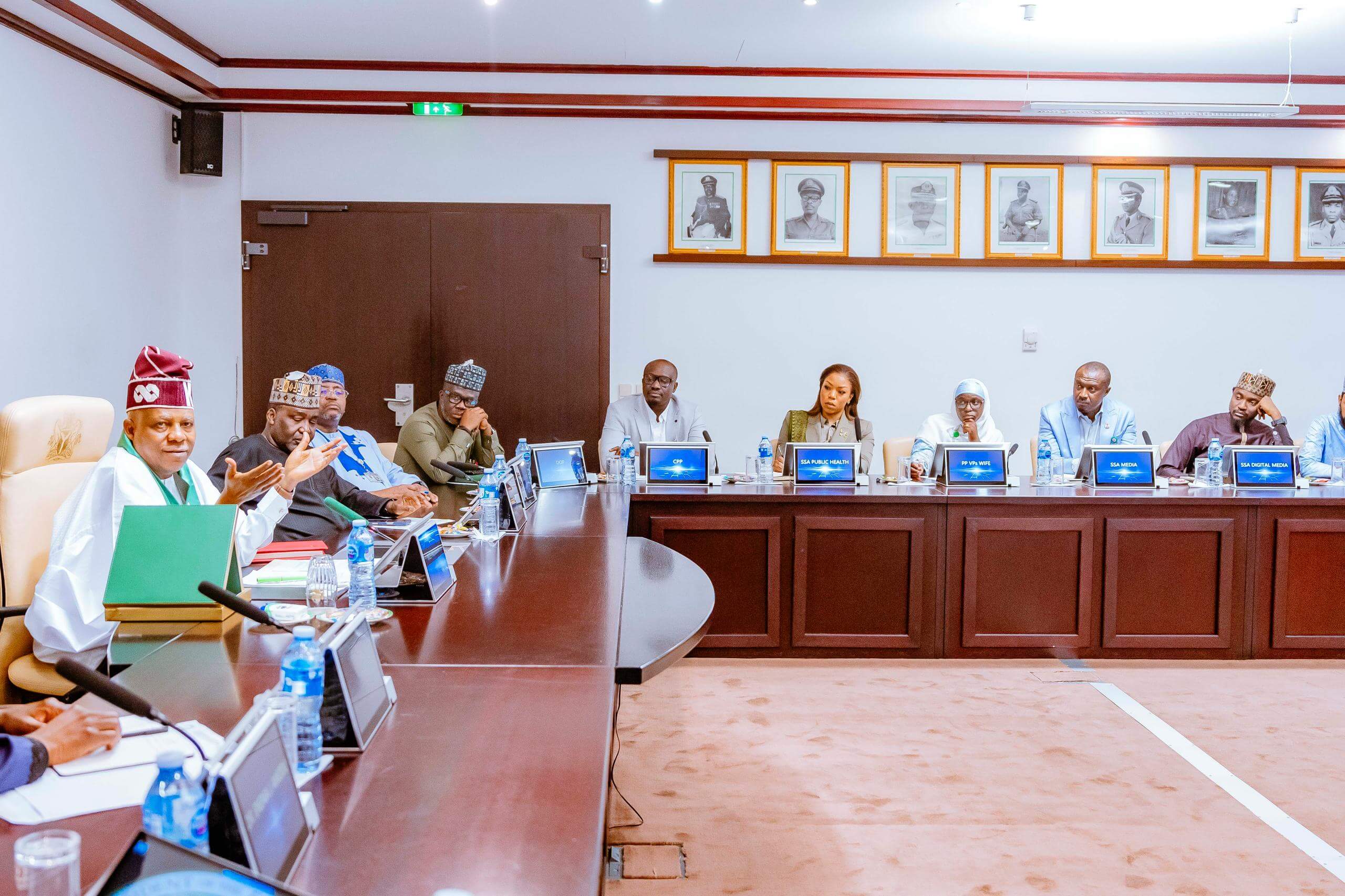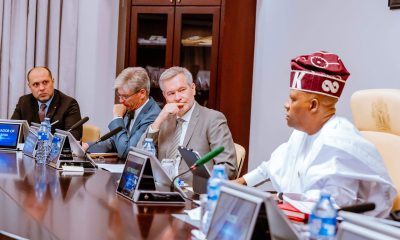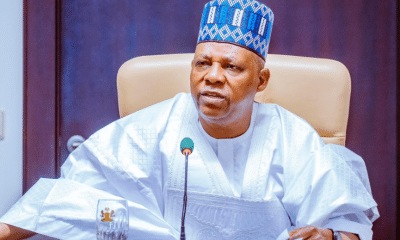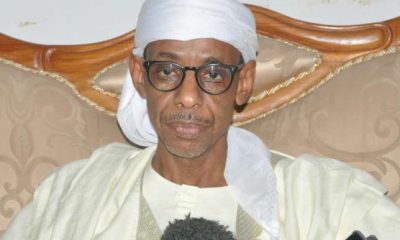Nigeria News
Brain Drain: Nigeria Has Less Than 500 ENT Surgeons

Vice President Kashim Shettima has said government is committed to improving access to ear, nose, and throat (ENT) healthcare services across Nigeria.
Shettima called for urgent action to upgrade Nigeria’s healthcare infrastructure, with a specific focus on ENT care to address the rising cases of hearing loss and shortage of specialised medical personnel in the field.
Naija News reports that the Vice President stated this on Thursday when he received a delegation from the Otorhinolaryngological Society of Nigeria (ORLSON) led by its President, Professor Aliyu Mohammed Kodiya, on a courtesy visit to the Presidential Villa, Abuja.
In a statement from his spokesman, Stanley Nkwocha, Senator Shettima told the team that President Bola Tinubu is determined to tackle key challenges in the ENT sector, including inadequate infrastructure, lack of equipment, and a growing wave of medical brain drain.
“A huge chunk of our population suffers from hearing ailments, but due to social stigmatisation, many are reluctant to come forward for treatment. The challenges you are highlighting are real, and the government is committed to going beyond cosmetic interventions,” he said.
Senator Shettima acknowledged the critical shortage of ENT specialists nationwide, saying, “there may not be up to 500 ENT surgeons in this country if immediate action is not taken.
“That is the reality we face today. Even our young doctors are migrating to Europe and other regions, but we are working to create an enabling environment for them here.”
He emphasised that government support will not only focus on acquiring equipment but will also prioritise the training, welfare, and retention of medical professionals in the field.
“The problem goes beyond equipment. Procuring medical devices without the manpower to operate them would amount to nothing,” he added.
Earlier, Prof. Kodiya drew attention to the alarming global and national statistics on hearing loss, describing it as a growing public health crisis.
He cited data from the World Health Organisation (WHO) indicating that by 2050, nearly 2.5 billion people globally will experience some degree of hearing loss, with over 700 million requiring rehabilitation.
“This condition imposes an estimated global financial burden of over $1 trillion annually due to lost productivity, healthcare costs, and social exclusion,” he said.
Kodiya regretted that Nigeria’s National Policy and Strategic Plan for Ear and Hearing Care, launched in 2019, expired in 2023 without full implementation, calling it a missed opportunity to develop a sustainable hearing health framework.
He reiterated ORLSON’s readiness to partner with the government, private sector, and international organisations to reduce the burden of hearing loss and improve access to quality ENT services in the country.












